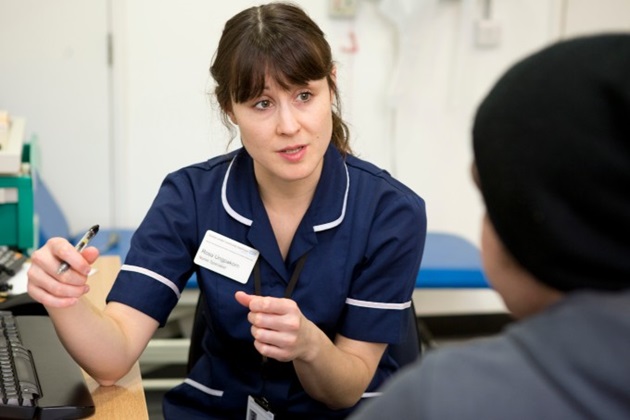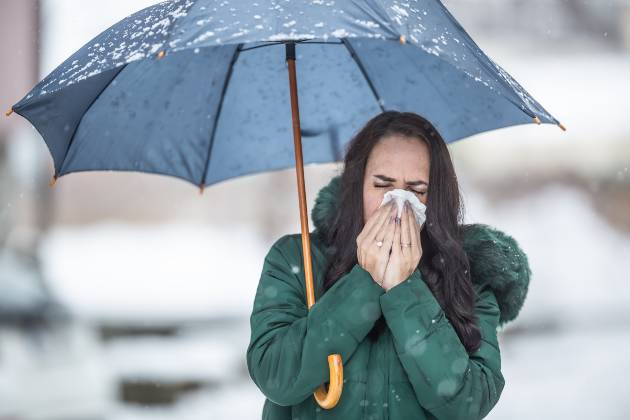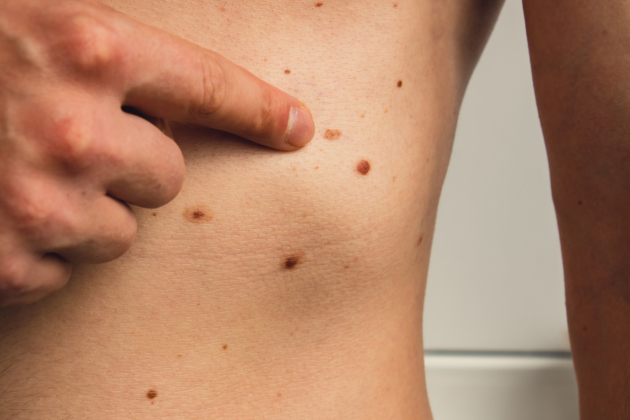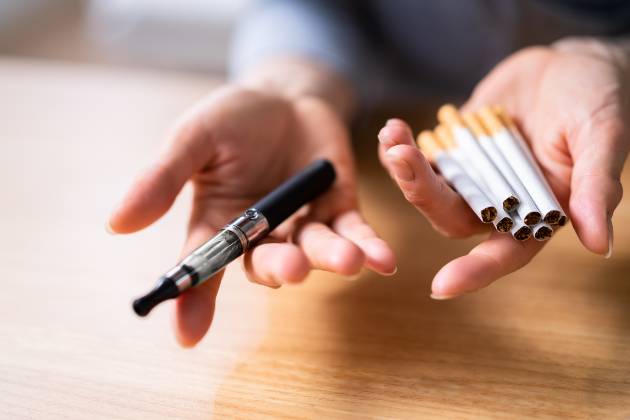Rosa Ungpakorn’s efforts to bring vital healthcare to some of society's most vulnerable people have just been recognised with the RCNi Advanced Nurse Practitioner Award 2020. She tells us about her homeless outreach initiative Westminster Street Nurse
Homelessness in London has more than doubled since 2010. Westminster, where Rosa Ungpakorn is an Advanced Nurse Practitioner with Central London Community Healthcare NHS Trust’s Homeless Health Service, has the highest population of rough sleepers of any local authority in the UK. People experiencing homelessness face barriers to accessing health care. Even when there are clinics in homeless hostels and day centres, some people still struggle to get the support they desperately need.
Seeing this, Rosa designed Westminster Street Nurse – an outreach initiative that sees nurse practitioners seeking out people living on the streets of Westminster and proactively offering them health care. Now, this work has earned her the Advanced Nurse Practitioner Award at the RCNi Nurse Awards 2020.
After only three months, the Westminster Street Nurse team had achieved a 400% increase in the number of patients seen on street outreach compared with the same period in the previous year. They also discovered that 80% of these people had never accessed clinics at day centres or hostels.
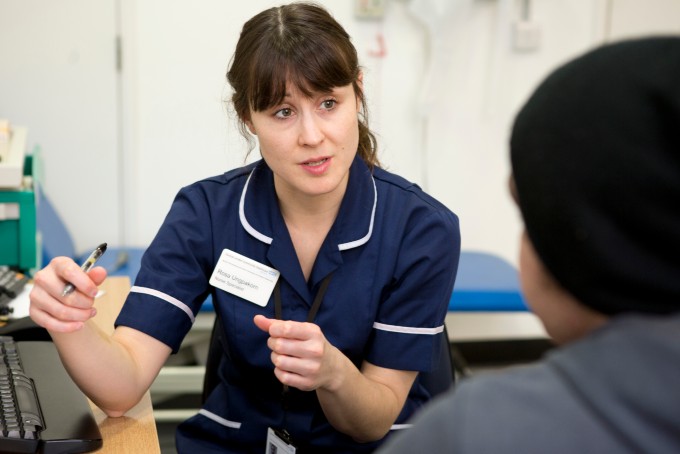
When the COVID-19 pandemic reached London, day centres and homeless hostels shut down. Many homeless people were temporarily housed in hotels, but street outreach became more important than ever. Rosa and her team moved fast to tackle health inequalities while advocating for those left outside. She told us how they dealt with the challenge:
We’re a responsive service anyway, but when the COVID-19 pandemic began, we had to think on our feet even more than usual. We’re lucky that our team is cohesive and willing to change, but it was still challenging to adapt so quickly.
Our usual week would involve providing nurse practitioner clinics for people who are homeless, every Monday to Friday in day centres in Westminster and on rotation around several homeless hostels in Hammersmith and Fulham.
Before COVID-19 we had increased our street outreach with Westminster Street Nurse. We had one nurse on shift all week, working in partnership with housing outreach teams to proactively bring health care to people.
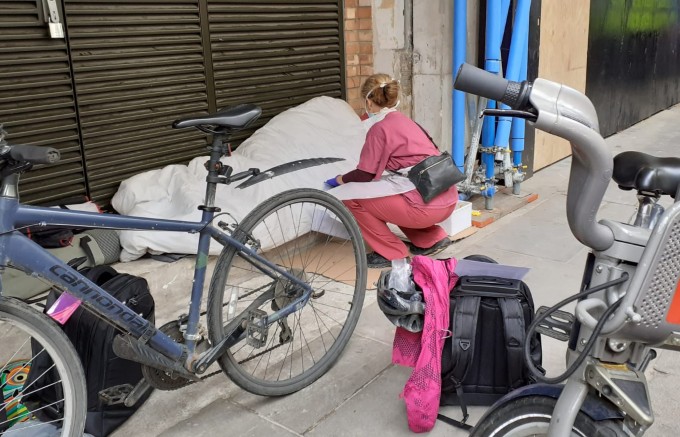
Just before official lockdown happened, day centres were forced to close, as they were concerned about the health of the people using their services. Then the government gave funding to councils to house people in emergency accommodation – a lot of our patients are now in hotels, which is really good.
We quickly started supporting hotels. We developed a standard operating procedure in line with primary care guidance for COVID-19, trying to do a lot of work on phones. We do have some face-to-face work, for example applying dressings, but we’re helping people to self-manage as much as possible.
We’re supporting patients with any health concern and helping people register with GPs, but as nurse practitioners we can deal with lots of the problems ourselves and are able to prescribe.
In mid-May, there were still 140 people on the street in Westminster which was alarming to see. St Mungo’s assessed a lot of those people and many had conditions making them more vulnerable to COVID-19.
There’s a real worry that people in hotels will end up on the streets again too, which is why we feel street outreach is so important. We increased our capacity to two nurses every day, using bikes to cover larger distances and avoid public transport.
Emergency accommodation has taken the strain off – people can now think about their health and at the same time access health care more easily
We used to give outreach packs to people we saw before COVID-19, but we adapted these to include hand wipes, soap, a government leaflet on the virus, foil blankets, and a snack bar because people were struggling to get food. We gave our contact details, explained the symptoms of COVID-19 and said if they developed any of those to give us a call.
There isn’t any government guidance about how to do health-related street outreach, so from our pilot and from published research I did last year, I’ve put together guidelines. There’ll be a lot of things we can add that we’ve adapted and improved during COVID-19, so that should mean they’re even better when they’re published.
We’ve also got a new closer partnership with Turning Point Drug and Alcohol Wellbeing Service. If people are going into hotels and they’re using drugs, in order for them to stick to the ‘stay at home’ advice, it was thought necessary to get them onto methadone scripts. Lots of people who’d never considered getting on a methadone script before have decided they would like to do that. That’s been really positive.
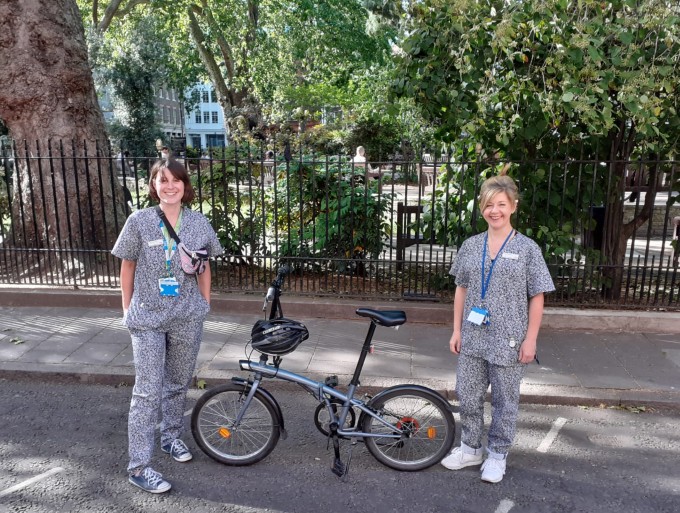
Bizarrely, there are pros and cons of COVID-19. Suddenly all this emergency accommodation has been given, but it’s so important that it can be given to everybody. When people are on the street, they’re just surviving. It’s hard to prioritise health when you’re trying to find somewhere safe to sleep, something to eat and a shower. The emergency accommodation has taken the strain off – people can now think about their health and at the same time access health care more easily.
We’re seeing people who’ve been on the street for years, who now look so well from being able to sleep in a bed, having food delivered regularly and all the people on methadone scripts are reducing their drug use.
There are huge health inequalities. The average life expectancy for people who are homeless is 44 for men and 42 for women. We’re planning what else we could do... It’s an amazing opportunity to improve people’s health.
In July and August, things changed again. Hotels started reopening to customers. Day centres for people experiencing homelessness also reopened, but with restricted services to reduce risk of virus transmission.
With conditions shifting, Rosa and her colleagues once again had to find swift solutions. They restarted clinics at day centres, but unable to reach as many people as usual, they’ve also been conducting remote consultations.
All of the people living in hotels in Westminster were given “move-on accommodation” in the borough or other areas of London. For now, this has even extended to people with no recourse to public funds. Meanwhile, communal night shelters that usually open over winter have been unable to welcome people due to COVID-19 recommendations.
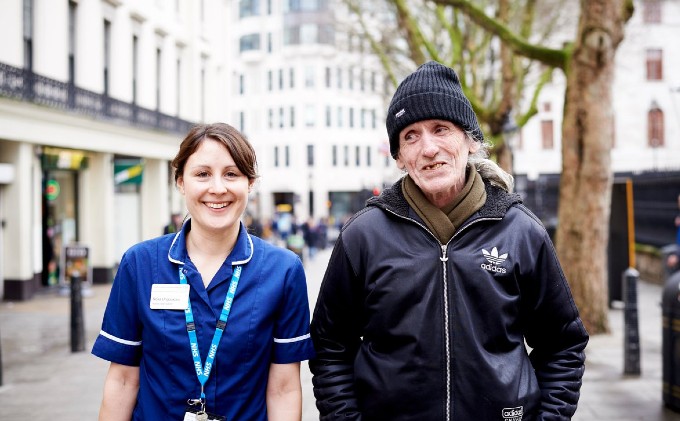
This means that the core of Rosa’s work is street outreach. “This situation has shown the importance of street outreach,” Rosa says. “Thankfully everyone in hotels was housed, but unfortunately we’re now seeing the number of people on the streets rising. The last count in Westminster was 266 people. Some of them are UK-born, but some are from Romania and the Roma community. We’re doing targeted shifts with St Mungo’s who have two outreach workers who speak Romanian.”
The Westminster Street Nurse team has paired up with other organisations too – The Connection at St Martin’s, Great Chapel Street Medical Centre, St Mungo's and Groundswell, a peer advocacy and research charity where people with lived experience of homelessness help nursing staff support people currently living on the street.
Rosa and colleagues are planning a flu vaccination programme for the winter months. “Our plan is to offer flu vaccines to people in hostels, day centres and on the streets – that’s not something we’ve done before,” Rosa says. “With street outreach work, if they want to have vaccine in clinic we offer that, but we find a lot of people prefer to have interventions then and there.”
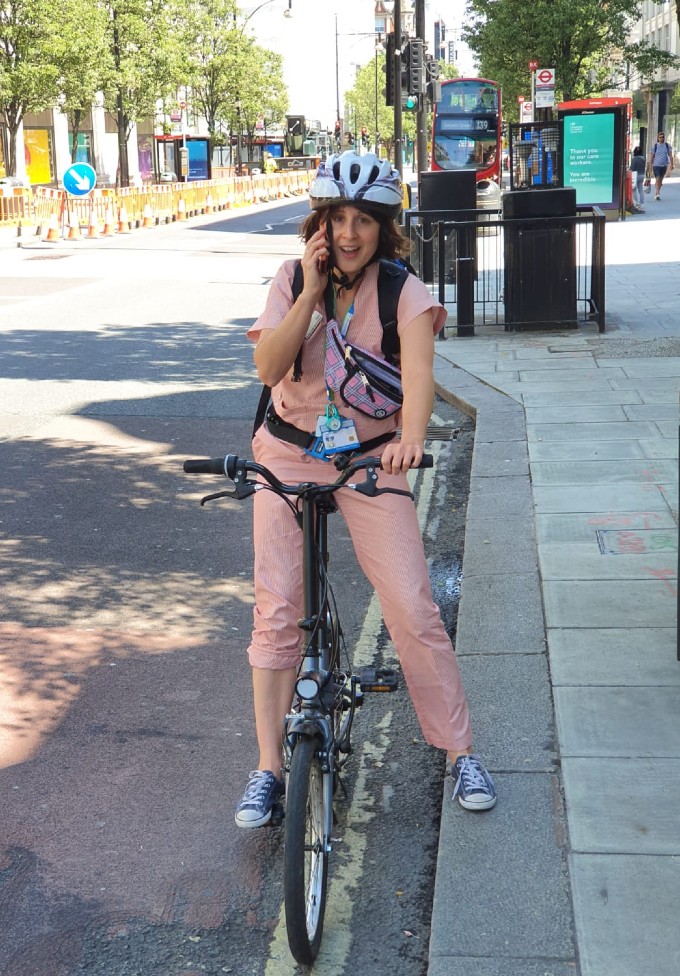
Support for people with drug addiction continues too. “Our work to facilitate rapid methadone scripts on the street has had really positive outcomes for people,” says Rosa. “We’re carrying on that partnership work with Turning Point for the foreseeable future.”
The past few months have allowed Rosa to create and influence policies for the future of street outreach nursing. She shared knowledge with Public Health England, has created a standard operating procedure for her trust, and also completed guidelines for homeless health street outreach. These are the first of their kind and will be published in the near future with RCN endorsement.
“All of the improvements we’ve made during this time have helped people experiencing homelessness access the care they need,” Rosa says.


